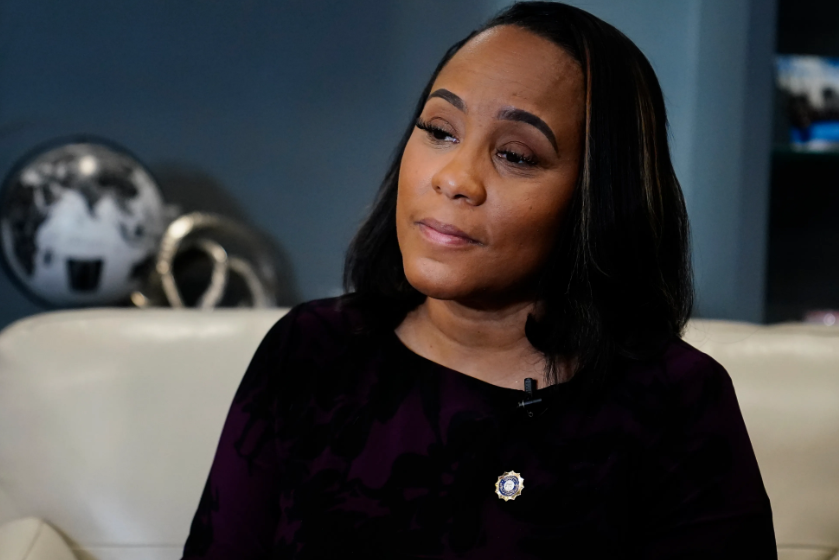In the spring of 2022, Georgia prosecutors received a valuable boost in their investigation into Donald Trump’s efforts to subvert the 2020 election.
This boost came from an unexpected source – the House Jan. 6 select committee. In mid-April 2022, committee staff met with lawyers and agents working for Fulton County District Attorney Fani Willis, who was preparing to convene a special grand jury investigation. The previously unreported meeting, in which the committee shared a limited set of evidence, provided crucial insight for the district attorney’s team.
Over the next few months, the committee and Willis’ team had a series of phone calls, with committee staff providing answers and guidance on key topics, such as Trump’s false elector’s gambit and his attempts to pressure Georgia Secretary of State Brad Raffensperger.
These tactics, which were heavily featured in the committee’s extensive investigation, ultimately formed the basis of the criminal charges brought against Trump and his allies by Willis last summer.
The extent of cooperation between the committee and the district attorney is rare and has raised questions about the appropriateness of a congressional investigation aiding a criminal prosecution. However, the committee’s assistance to Willis’ prosecution was largely due to the fact that, at the time, the Justice Department was also investigating Trump’s election subversion efforts, and the committee was concerned about sharing sensitive material with potential defendants.
The meeting and phone calls between the two teams proved to be highly beneficial for Willis’ probe. According to court filings, committee staff shared information on key topics, including John Eastman’s strategy to overturn the election results, efforts to pressure local officials, and the fake elector certificates that were sent to the National Archives as part of Trump’s continued efforts to subvert the election. All of these topics were then prominently featured in Willis’ indictment and formed the basis for the charges against Trump and his co-defendants.
Although the committee was hesitant to share its evidence with the Justice Department, it had no qualms about providing assistance to Willis’ team, as her probe was just beginning to interview witnesses.
This meant that there were no defendants at the time, and therefore no one was entitled to discovery that could have included information shared by the committee. As a result, committee staff felt comfortable providing significant guidance and information to Willis’ team.
However, the committee’s cooperation with Willis’ team has recently come under scrutiny. Congressional Republicans have begun to demand more details about the contacts between the committee and the district attorney, with some alleging that the committee destroyed or hid evidence. Trump’s legal team has also used these contacts as a point of contention, seeking more information to challenge the charges against him.
In response to Republican pressure, Willis has refused to disclose any non-public information about her team’s contacts with the committee, stating that it goes against the principles of federalism and separation of powers. Similarly, the committee has also largely denied the requests for information, stating that all of the information they shared with prosecutors is now public.
As the criminal case against Trump and his allies continues in Fulton County, the extent of the committee’s role in aiding the prosecution will likely come under further scrutiny. This case highlights the importance and potential consequences of congressional investigations and the cooperation between different branches of government in the pursuit of justice.

